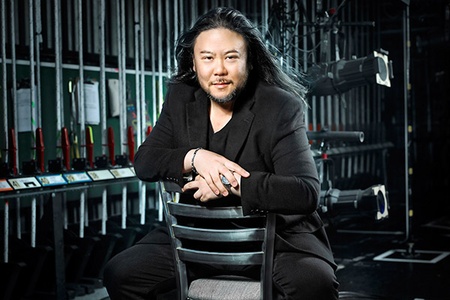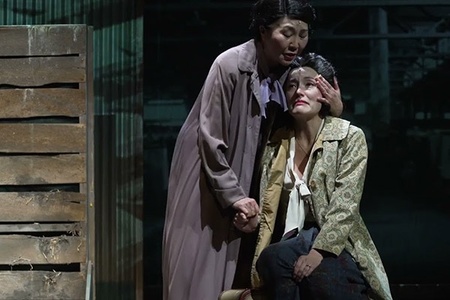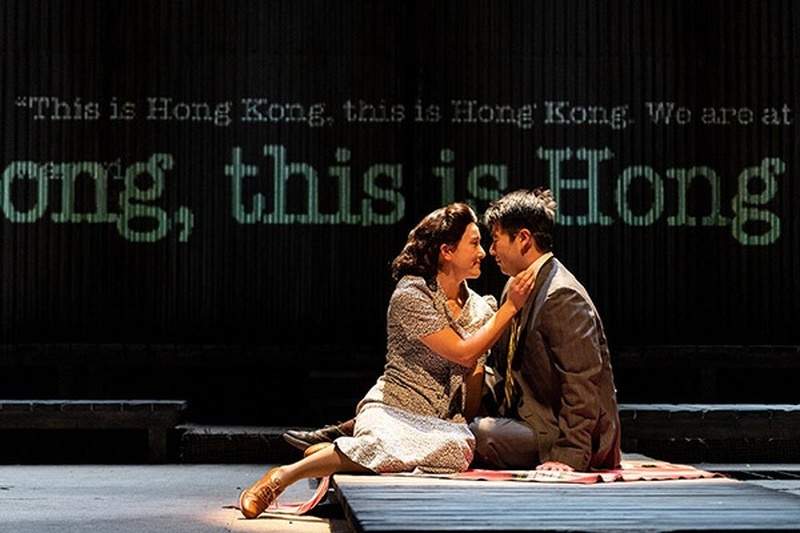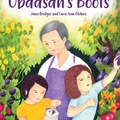CALGARY — When author Mark Sakamoto’s memoir, Forgiveness: A Gift From My Grandparents, won CBC’s Canada Reads competition in 2018, its themes of resilience and forgiveness through adversity, racism, and war connected to Canadian readers, even though the book was published four years earlier and covered historical events from decades ago.
In Forgiveness, Sakamoto explores the lives of his grandparents and their traumatic experiences during the Second World War. His maternal grandfather, Ralph MacLean, was a Canadian soldier who spent years as a prisoner of war in a Japanese camp. His paternal grandmother, Mitsue Sakamoto, was forcibly uprooted, dispossessed, and exiled from B.C., along with thousands of Japanese Canadians. Her family worked as forced labour on a sugar beet farm in Alberta. After experiencing tremendous adversity, Sakamoto’s grandparents chose not to live with anger but instead embrace and teach forgiveness.
Five years later, Forgiveness connects to Canadians again, but this time through an epic stage play, a joint production from Theatre Calgary and Vancouver’s Arts Club Theatre Company. As Canadians reel from the xenophobia that spiked during the pandemic, witness the war in Ukraine, and navigate truth and reconciliation, the themes of Forgiveness continue to feel ever-relevant.
Forgiveness runs at the Art Commons, Bell Max Theatre in Calgary from Mar. 7 to Apr. 1.
“Technology has advanced so fiercely and amazingly, but it has advanced far quicker than our hearts,” says Forgiveness director Stafford Arima. “If you look at everything that happens in Forgiveness if you removed the 60s clothing or the 40s hairstyle… It’s kind of obvious, the immediacy of this story, and how anyone who is of the other is cast aside, is questioned, is considered less than.”
Also the artistic director of Theatre Calgary, Arima brings his experience as an international, award-winning theatre director with over 25 years in the entertainment industry to his role as director.
He made history as the first Asian Canadian to direct a Broadway musical with the production of Allegiance in 2015. Starring George Takei and Lea Salonga, the musical was inspired by a Japanese American family interned during the Second World War. After telling the fictional story of a Japanese American family on Broadway, it felt fitting to explore the true story of a Japanese Canadian family in Canadian theatre, says Arima.

The stage adaption was written by Governor General Literary Award-winning playwright Hiro Kanagawa, who focused on themes central to the memoir to tell a story of a family’s resilience and ability to find forgiveness through injustice and inhumanity.
“It was Hiro’s theatrical savvy to find the through line of the narrative to make it work on the stage. What remains present are the main characters, Mitsue and Ralph, [Sakamoto’s] two grandparents, and their journeys with their respective families. Family is a huge ingredient in the memoir, and it’s also a huge ingredient in the play,” says Arima. “When you have these two wonderful characters, they’re almost like our tour guides. They take us through this journey of memory… The hardships, the joys, the calamities, and the triumphant rebirths of them and their families is what stays true in this adaptation.”
A joint production between Theatre Calgary and the Arts Club Theatre Company, the play completed its run at Stanley Industrial Alliance Stage in Vancouver on Feb. 12 before heading to Calgary this March. It felt fitting for two major theatres companies in Alberta and B.C. to produce this play, as the provinces carry crucial roles in this narrative.
Like Sakamoto’s memoir, the play takes the audience through a myriad of locations, landscapes, and time periods, from the 1930s and the war to the 1970s, from Vancouver to Alberta, Magdalen Islands in Quebec to Hong Kong and Japan.
Thirteen actors play 31 characters to bring Sakamoto’s family story to life on the stage. Bridging between the times and places of this expansive production is an elegant combination of animation and projection design created by Japanese Canadian artist Cindy Mochizuki.
Sliding metal screens, created by set designer Pam Johnson become the canvas for Mochizuki’s striking illustrations. The illustrations are projected on the stage and set the landscape and tone for each scene in this cinematic play.
“Cindy’s work as a visual artist and animator was so crucial to the language of the design,” says Arima.

Production began pre-pandemic in 2019, and when Arima was approached to direct the play, he was drawn not only to Sakamoto’s memoir, but to exploring a story with a deep connection to his family history.
Arima’s father, Ray, was just a child when he was interned with his mother, brother, and two older sisters. While interned, Ray’s mother died, likely due to inadequate health care in the camps. She was 47. His eldest sister was left to look after the family since their father passed away before the war. The internment was not something Arima’s family often talked about while he was growing up. When they did, it was in bits and pieces, shikata ga nai, says Arima.
During the play’s run in Vancouver, some of Arima’s family came out to see the show, and others will see the play in Calgary, like his father. Arima is curious to see how his father will react to the piece. While his father saw Allegiance on Broadway, the musical felt doubly removed from him; it was fictional and took place in America. Meanwhile, Forgiveness connects directly to his father’s wartime experience.
Arima hopes people with these experiences in their family can see themselves represented on the stage and feel their stories and experiences are worth sharing or exploring.
“There is a representation in seeing one’s story told on a grand scale, which is always wonderful, to know that one’s story counts, and one’s story has the value to be on a large platform,” says Arima.
For many Japanese Canadians, exploring these pasts within their own families can be difficult and often are delicate topics not talked about. Arima found while asking about his family’s wartime experience during background research for Allegiance, it was painful for his late aunt to talk about the past. Instead, for Japanese Canadians in the audience, he hopes the play can be a way to traverse those painful wartime experiences alongside the characters, but protected by the cover of the dark theatre. From their seats, they can witness one family’s journey towards healing and forgiveness.
“For those who perhaps still find it difficult to let go of the pain, to let go of the hurt, perhaps the play can be a little tonic,” says Arima. “Maybe the play will help them in their journey of the awakening of forgiveness.”
In Vancouver, during the play’s preview period, after the play had ended and people were leaving, a couple couldn’t get up from their seats. Afterward, they introduced themselves to Arima and shared their family’s connection to the war, the Holocaust, and Auschwitz, Germany.
“They said the story was so universal and filled with the same principles their family has worked through, forgiveness. I was very moved by that because the best kind of art is one that transcends some kind of ownership,” says Arima.
Forgiveness is not a story just for Japanese Canadians. Sakamoto’s memoir originally connected to readers across Canada because of the humanity at the heart of the story.
“Whether they’re named Mitsue or they’re named Ralph, these are human beings, they’re all Canadians, and you follow their stories,” says Arima. “I think that humanness will resonate with people, who are Japanese Canadian, or from the East Coast, West Coast, Jewish, Black, from the LGBTQ+ community, and they take away something that will move, touch and inspire them.”
* * * * *
Forgiveness runs at Bell Max Theatre in Calgary from March 7 to April 1, 2023. For tickets and to learn more, visit the Theatre Calgary website here.
*This article was originally published in the Nikkei Voice on March 15, 2023.
© 2023 Kelly Fleck / Nikkei Voice






